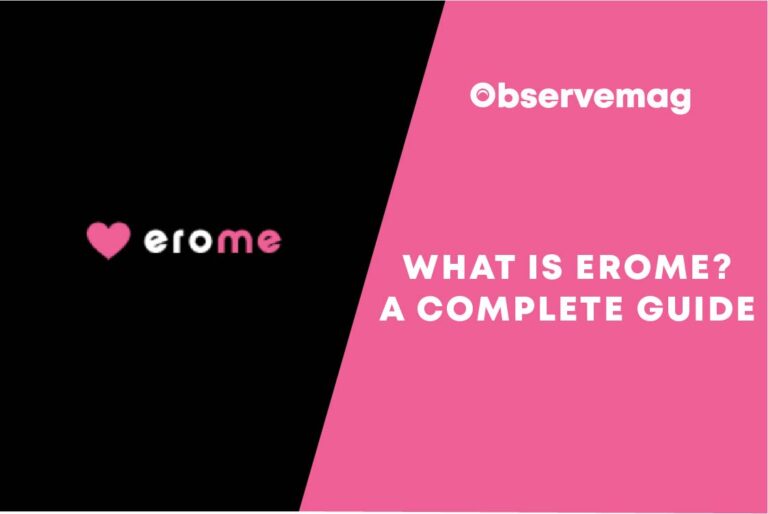Erome.com: Hot Pics & Videos On Google Discover!
Is "erome.com" merely a website, or is it a reflection of broader societal shifts in how we consume and perceive content?
Erome.com has become a significant and sometimes controversial element of the digital landscape, prompting a re-evaluation of online spaces and the boundaries of expression. Its impact, however, extends beyond simple categorization; it represents a complex interplay of user behavior, content creation, and the ongoing evolution of internet culture. The platform, known for its specific niche, has cultivated a devoted user base and generated considerable discussion regarding its role within the broader ecosystem of the World Wide Web. Understanding this impact requires a nuanced examination of its operations, its community, and its influence on the dialogue surrounding content moderation and freedom of expression. The very mention of "erome.com" often evokes strong reactions, underscoring the need for a thoughtful and comprehensive analysis of its place in the digital world.
The genesis of the site, and its subsequent evolution, is inextricably linked to the dynamic nature of the internet itself. Initially, platforms often emerged with specific aims or particular philosophies, however, with the passage of time, user interactions, technical advancements and shifting community norms can drastically change a platform's direction. It's crucial to consider these developments in context, understanding not just the platform's initial design but also the adaptations it undergoes as it responds to its user base and the technological landscape. The platform in question, like many online entities, did not emerge in a vacuum. Broader societal trends, the proliferation of accessible technology, and the ever-changing legal framework governing digital content all play a role in its development and operation.
The platform's user-driven content model is an essential factor in shaping its identity. Platforms of this nature often depend on the contributions of their users, who become the primary source of content, the driving force behind its success, and also the key to maintaining user engagement. Understanding the motivations and behavior of these users is fundamental to any serious analysis. How do they interact with the platform? What are their expectations, and what are their reasons for contributing content? These questions are vital in building a comprehensive understanding of the platform's ecosystem. The answers lie not only in examining the platform's design but also in studying the user community's demographics, its subcultures, and the ever-shifting norms that govern its conduct.
The discussion surrounding "erome.com" frequently touches upon the ethical considerations of content moderation. Any platform that hosts user-generated material struggles with issues of what is permissible. The debate centers around the balance between allowing freedom of expression and protecting against harmful content. The complexities inherent in this challenge are considerable. Determining the boundaries of acceptable content is a subjective process, with various jurisdictions and stakeholders holding different viewpoints. The ever-changing character of online content, coupled with the speed at which it is generated and distributed, poses substantial difficulties for content moderation teams. Examining the approaches utilized by the platform, and the strategies employed to moderate content, is vital to comprehending its overall impact and navigating the complex ethical terrain it inhabits.
Furthermore, the platform's relationship with the broader legal framework is an essential area of focus. Digital platforms face an increasingly complex web of regulations, concerning issues such as copyright infringement, user privacy, and the distribution of illegal content. The legal landscape differs drastically from jurisdiction to jurisdiction, generating further difficulties for platforms with a global reach. Comprehending how the platform complies with and is affected by these legal frameworks is crucial for assessing its overall operations and its long-term viability. Legal challenges, changes in regulations, and judicial precedents can profoundly impact the platform's future and alter the way it interacts with its users and the outside world.
The economic model underpinning the platform is another significant factor. Online platforms often rely on a combination of advertising, subscriptions, or other revenue streams to sustain their operations. The particular economic structure adopted by the platform has a direct impact on its content, its users, and its overall trajectory. Advertising can influence the kind of content promoted, the site's user experience, and its financial viability. Subscription models often shape user behavior, as they may create distinct levels of access or create different incentives for content contributors. Analyzing the economic underpinnings of the platform offers important insights into its motives, its operations, and its long-term sustainability.
The technological infrastructure and user experience of any website also deserve scrutiny. The platform's design choices, the way content is displayed, the tools for user interaction, and the site's overall functionality significantly affect user experience. The design of the platform is often a crucial element of its success, shaping the way content is created, discovered, and consumed. The technological features, such as content-upload tools, search capabilities, and mechanisms for community interaction, all play a significant role in the platform's overall appeal. Examining the platform's technological aspects helps clarify its operational efficiency, its capacity to manage content, and its ability to evolve and meet the changing requirements of its user base.
Additionally, comparisons with other similar platforms can offer valuable perspectives. Examining other platforms operating in comparable spaces offers important context and allows for a broader understanding of industry trends, user preferences, and the challenges faced by content-driven websites. By evaluating how this platform compares to its competitors regarding content strategy, content moderation, economic models, and technological advancements, a more comprehensive picture can be assembled. This comparative analysis also helps identify best practices, emerging trends, and potential weaknesses.
The concept of community plays a central role in understanding the dynamics of this platform. Online platforms, particularly those based on user-generated content, often cultivate strong communities. These communities develop their own norms, practices, and subcultures. Recognizing the social dimensions of the platform is essential for understanding the user dynamics and its long-term sustainability. The interactions that take place between users, the social groups that emerge, and the ways in which community standards are established and enforced all greatly shape the overall character of the platform. Understanding the social structures within the platform is vital for assessing its influence on user behavior and its cultural significance.
The media coverage and public perception surrounding the platform cannot be overlooked. The way in which the platform is depicted in the media, and how it is perceived by the general public, has a direct impact on its reputation, its user base, and its ability to adapt to the shifting digital landscape. Media coverage can shape public opinion, influencing how the platform is perceived by potential users, advertisers, and regulatory bodies. Public perception is greatly influenced by the platform's content, its user interactions, and its handling of controversial issues. Analyzing the media's portrayal of the platform and examining public discourse offers valuable insights into the broader cultural and societal implications.
Finally, understanding the long-term implications of the platform requires a forward-looking approach. As technology advances and as the internet continues to evolve, platforms such as these will inevitably face both opportunities and challenges. Predicting future trends in content consumption, online communities, and regulatory frameworks is crucial to assessing its long-term viability and its continuing impact. Considering its potential for innovation, its capacity to adapt to changing user needs, and its ability to navigate the complex legal and ethical issues facing the digital realm will determine its ultimate legacy. The platform's future, like that of many internet platforms, depends on its ability to respond to the evolving needs of its user base, manage the complex ethical issues involved, and align with the ever-shifting technological and legal landscape.
The platform's narrative is a complex one, filled with contradictions and complexities. It's a space that can be viewed as both a reflection of, and a contributor to, the intricate nature of the online world. Examining its operations, user base, ethical considerations, and its legal and economic models, offers a complete overview of its impact. By assessing its technological infrastructure, its comparative dimensions, and its community dynamics, we can gain a wider understanding of its place in the digital world. Comprehending the media and public view surrounding the platform, and analyzing its long-term implications, is vital in comprehending its future. Only through such multifaceted investigation can we gain a full understanding of this complex and evolving digital entity.
| Platform Overview | |
|---|---|
| Name | Erome.com |
| Type | User-generated content platform |
| Primary Focus | Adult-oriented content |
| Content Format | Images, videos, and written content |
| User Base | Primarily adults |
| Key Features | User profiles, content uploading, content sharing, community features |
| Monetization | Advertising, premium subscriptions (potentially) |
| Content Moderation | Varies, but typically involves a combination of automated systems and human moderators |
| Legal Status | Subject to various legal frameworks regarding content distribution, copyright, and user privacy, depending on the jurisdiction |
| Website Reference | SimilarWeb - erome.com |


